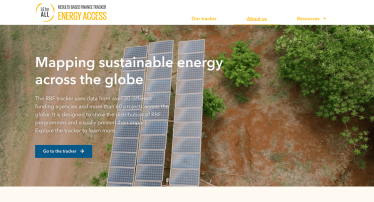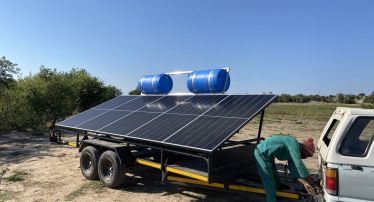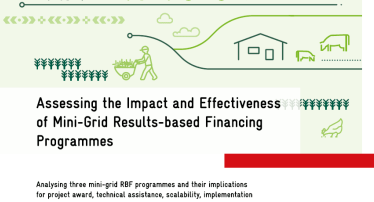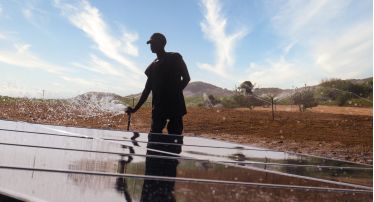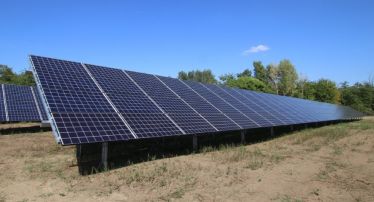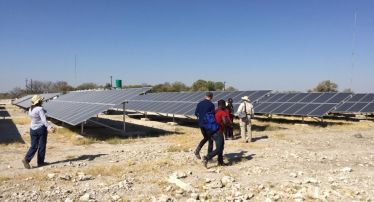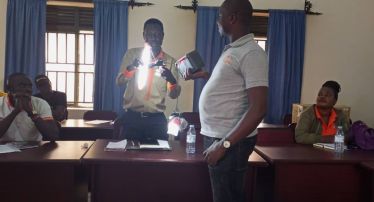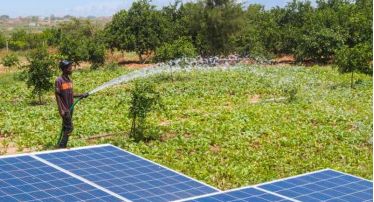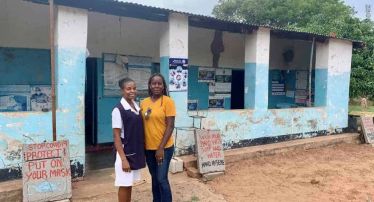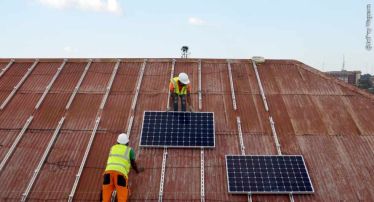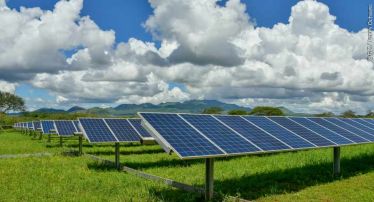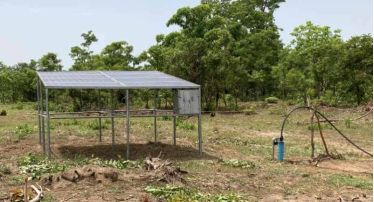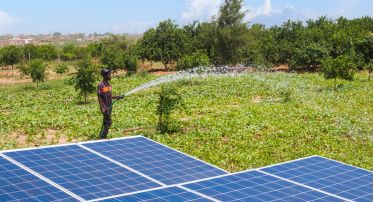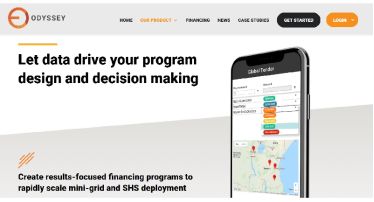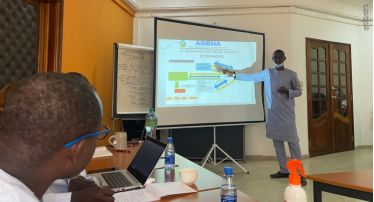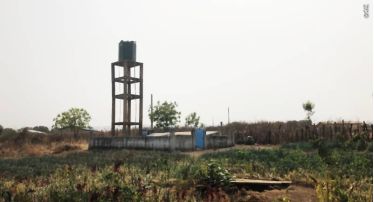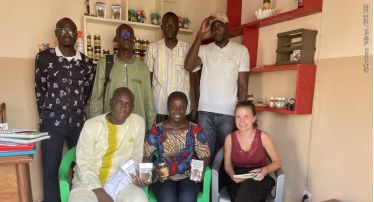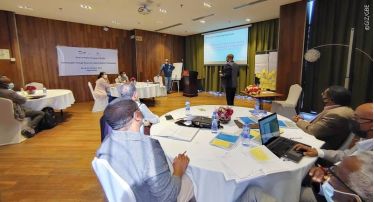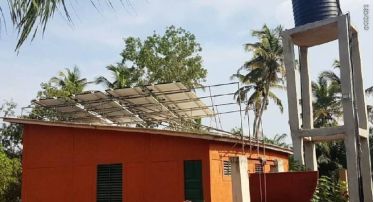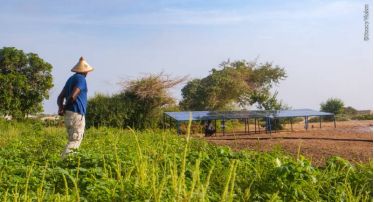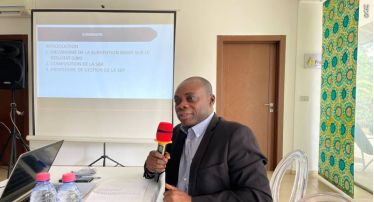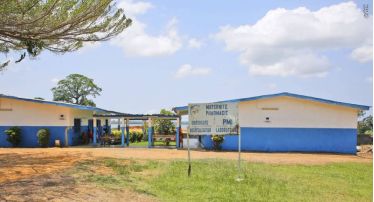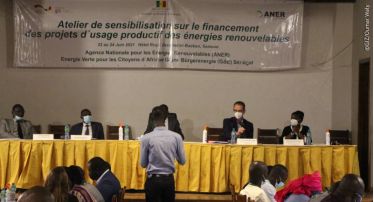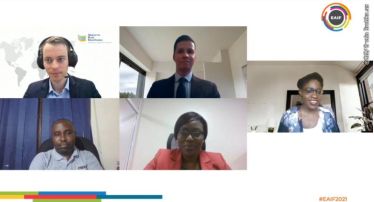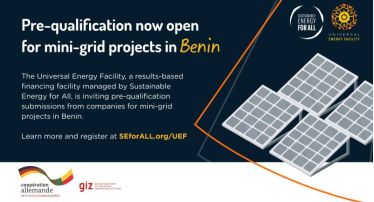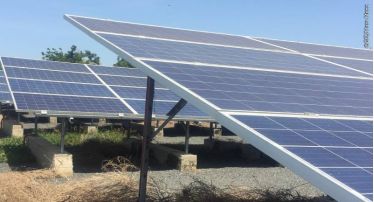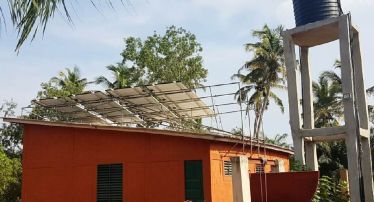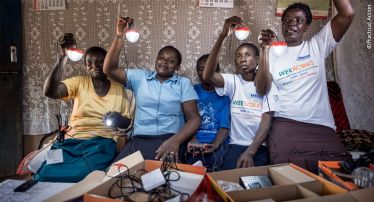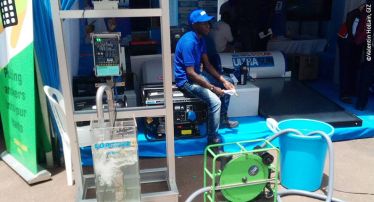Financing access to energy
Facts, challenges & objective
Access to energy and connected productive technologies have the potential to promote the economic development of local enterprises. However, financing productive use of energy (PUE) appliances, such as solar water pumps, mills or dryers, remains a challenge for small enterprises and rural populations in most countries in Sub-Saharan Africa.
More than 350 million people on the African continent do not have access to an account at a bank and are hence deprived of financial services. At the same time, the upfront cost of the equipment needed for productive energy use often exceeds by far the financial capacities of small entrepreneurs, especially in rural areas. In contrast to conventional diesel generators, photovoltaic systems have higher upfront investment cost, but very low operating cost, as no additional fuel is needed. The upfront investment is a challenge for people with low income and no collaterals, which would reduce the risk for financing institutions in case of a payment default. Also, comprehensive data on the creditworthiness of potential borrower are missing, which is an additional risk to lenders.
The lack of knowledge about decentralized renewable energy systems increases the perceived risk. Since finance institutions, consider financing productive use of energy as risky the interest rates proposed are high and jeopardize promising business cases for many users.
Green People’s Energy provides financial support and capacity development measures to financing institutions, end-users and private companies to improve access to finance for rural enterprises and promote productive use of energy in off-grid rural communities.
Support for finance institutions to provide green finance
- Building links between micro-finance institutions (MFIs), solar companies and organized savings and loans associations or cooperatives to access funds
- Establishing a guarantee fund to reduce the risk of micro-loans provided to village loan associations for the procurement of PUE appliances
- Offering financial incentives to microfinance institutions to develop and introduce a dedicated credit-line for renewable energy-based PUE appliances
- Training of financial institutions on financing renewable energy solutions
- Putting users in touch with solar companies
Support for local enterprises as end-users
- End-user grant schemes that make PUE appliances affordable in rural communities
- Energy assessments and technical advice to local enterprises when applying for finance
- Matching local enterprises with suitable MFI
Support for private solar companies
- Offering results-based finance (RBF) schemes that provide incentives for each sold PUE appliance to enable cost reductions for end-users and slowly develop the market
